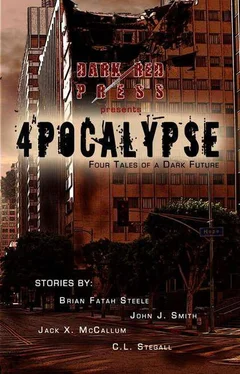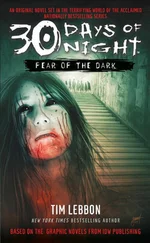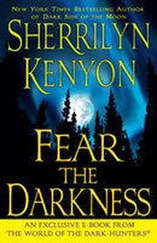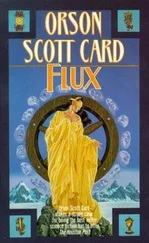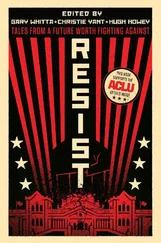A woman screamed behind me. It was Rose Lubisch. Kalife Montagne was dragging her away by the hair. Before I could move a grin darted out from the hotel. I heard Soledad Morales scream and realized the grin was Ed Mariano, the leader of the Wrecking Crew. He opened his mouth and bit into the back of Montagne’s neck. Montagne wailed and his people scattered, half of them running down the street and the rest running into the Palace, to their doom.
Now most of my people began running in fright, men and woman and children moving in twos and threes down Market Street in the direction of the Ferry Building.
Benjamin stepped forward and raised his gun, trying to get a clear shot at Ed. Montagne let out a series of wet coughs and before I could pull Rose away from him Ed Mariano leaped at me. I was knocked into Benjamin and all three of us went down. Benjamin got to his feet, kicked Ed in the face, and then I slashed Ed’s neck wide open.
I turned and saw Rose lying on her back, her hands cradling her huge belly. Montagne was standing over her and… I literally had to shake my head to clear it, and look again. Montagne was furiously jerking off on Rose. He was spitting blood and saliva and phlegm and pulling a flaccid cock, all in a desperate mindless drive to spread the parasite. I brought my sword up and over and cleaved Montagne’s head like a gourd. It took some effort to pull the blade free.
Rose was using a shirttail to wipe her face and hands clean. “Am I sick?” She asked it again and again as I helped her to her feet.
I looked at her closely. “No,” I said. “You got lucky. You’re fine.”
We caught up with the rest of our group a block away, and I told them part of the plan I had worked out with Renfield and Randall some time ago.
“We’re heading for Pier 39 as quickly and as quietly as we can,” I said. “There should still be boats there, sailboats, dinghies, anything that can get us out of the city.”
There were a lot of people who lived on Pier 39, and other piers, year-round. They rented boats or rented the slips for their boats, and aside from the aggravation of gawking tourists and occasionally damp quarters it was like living in a studio apartment. There were also privately owned small watercraft there… the last time I was down there, but that was a few years back. I hoped there would be something, anything that could get us out of the city.
I didn’t tell anyone how little time we had. They would panic. I didn’t tell anyone where I hoped we could land. I let them assume we were heading for Marin or the East Bay. And I didn’t tell them what I had learned from Renfield recently; that there were armed patrols from an ambiguously-named Unified Containment Task Force patrolling the shoreline from the Pacific Ocean to San Francisco Bay.
Benjamin and I did a quick head count. There were forty-five of us. I formed up a traveling unit. Six senior citizens went to the back of the group. I felt like an utter bastard doing that, but I had no choice. They would slow us down. So would three adults who were overweight and out of shape. They went to the rear as well. Conaghan barely made the cut, and he gave me a shrewd look and a grateful nod. There were twelve children, and only a few with their parents. The children went inside a moving circle. There were eight teens including Benjamin. They would form part of a defensive wall around the little ones, along with fifteen fit adults, and me.
Our weapons were pry bars, axes, baseball bats, and my sword. A couple of the older children had cans of pepper spray. The effects of pepper spray didn’t last long, but a good burst really messed up a grin for a minute or two, leaving them struggling for breath and hacking up copious amounts of phlegm.
“You keep heading for the pier,” Randall said. “I’m heading in the other direction.”
Benjamin shook his head. “Dude, are you nuts?”
I had told Benjamin and Randall what Renfield had told me earlier on the stairs.
Randall gave him a bitter smile. “There’s a Police Station at Eddy and Jones. I’m hoping that I can get there, get inside, and find anything left behind—weapons, ammunition, batons, anything—and then catch up with you.”
I gave Randall a nod. I knew I wouldn’t be able to talk him out of it.
“I’ll need a volunteer,” Randall said. “If I do find anything… guns are heavy.”
A sturdy Latino named Ayala agreed to go with Randall. Ayala’s wife and little girl would be coming with me to Pier 39.
“On a normal day it’s a fifteen minute walk,” Randall said.”
I gave him a grim smile. “On a normal day.”
He had put a leash on Clyde. He handed the leash to me. “If I don’t make it back, take care of him.”
He squatted and gave Clyde a hug, and then turned and trotted down Market Street, with Ayala right on his heels.
* * * * *
We went straight down Market Street to the arc of the Embarcadero that ran between city and shoreline. Night was falling and the streetlights had gone dark long ago. This wasn’t the quickest route, but it was the safest. Market Street and the Embarcadero were wide. With a little luck, we would see any attackers coming. Cutting through the city would mean edging around cars, navigating close sidewalks, narrow streets and pitch-black alleys where anything could be lurking.
We passed the Ferry Building, the clock tower looming over us silently in a shroud of chilling fog that was rolling in off the bay.
I looked up, knowing that if the fog descended to street level we might as well be walking blind.
We passed silent piers on a walkway that was once a favorite of tourists and locals. All that remained of the sun was a red-gold glow ahead of us. I hoped we still had a couple of hours to get out of the city.
We had just passed Broadway and were coming up on Pier 9 when I heard the slap of boots on the street. A grinning firefighter whose skull was mostly exposed bone was loping toward us. Two men in our group stepped up and took the thing down with pry-bars. I looked at the dead grin’s hands and was reminded of the young boy killed after I set Jillian’s body into the bay. The man’s hands were huge, his fingernails like rough blades of polished stone. Was the smiling sickness physically changing people?
The group was moving at a pace that I thought was agonizingly slow. Soon we were passing Pier 33, where tourists used to embark on ferries to a location very much on my mind. At the end of Bay Street, not far from Pier 39, Renfield laughed and said, “Hey, I’ve seen that little guy before.”
A long gray and white cat was running hell for leather from the opposite end of the Embarcadero.
Clyde pulled on his leash, and I pulled back.
The cat worked its way into the center of the group and huddled among the children.
“Something spooked it,” Benjamin said.
We walked another few blocks and were in sight of the pier when we heard the noise.
It was like the boom of the surf out at Ocean Beach, and the murmur of an excited crowd watching a Giants game at AT&T Park. Within that vast susurration, that soft roar, were stark popping, snapping sounds. A flare was fired into the sky, the light stark and intense.
Then we saw the grins. There had to be hundreds of them, running and shambling and stumbling. At first they were running blind, running from something, and then they saw us, and began making desperately greedy noises as they ran toward us.
Many of the grins appeared to be fresh, for lack of a better term. Aside from the terrible rictus and filthy or torn clothes, they looked almost normal. Grins that had been infected for a longer time appeared to be undergoing some sort of physical change. Their hands were bigger, huge clawed weapons intended only for tearing. Some of them had larger jaws and their teeth were longer and sharper. Their faces and torsos were thin and wasted, the skin pulled brutally tight over the bones, as if something had been taken from those emaciated areas and used to build up the hands and jaws. The older grins now looked more adept than ever of achieving their singular purpose—tearing open a wound in a new host and spreading the parasites even further.
Читать дальше
